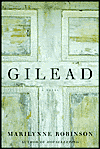
Completion Date: June 11, 2007
Publication Year: 2004
Pages: 544
Owned Prior to 2007
A dazzling triumph from the bestselling author of The Virgin Suicides--the astonishing tale of a gene that passes down through three generations of a Greek-American family and flowers in the body of a teenage girl.This book won the Pulitizer Prize and is the newest Oprah Book Club pick. It has been sitting on my to be read pile for a couple years now. I did not read it because was the Oprah summer pick, but more because I have wanted to read it for a while and was just really slow getting around to it. I really enjoyed The Virgin Suicides by him, but I think I liked this book better. It took a while to come out, and you can see the research put into it.
In the spring of 1974, Calliope Stephanides, a student at a girls' school in Grosse Pointe, finds herself drawn to a chain-smoking, strawberry blond clasmate with a gift for acting. The passion that furtively develops between them--along with Callie's failure to develop--leads Callie to suspect that she is not like other girls. In fact, she is not really a girl at all.
The explanation for this shocking state of affairs takes us out of suburbia- back before the Detroit race riots of 1967, before the rise of the Motor City and Prohibition, to 1922, when the Turks sacked Smyrna and Callie's grandparents fled for their lives. Back to a tiny village in Asia Minor where two lovers, and one rare genetic mutation, set in motion the metamorphosis that will turn Callie into a being both mythical and perfectly real: a hermaphrodite.
Spanning eight decades--and one unusually awkward adolescence- Jeffrey Eugenides's long-awaited second novel is a grand, utterly original fable of crossed bloodlines, the intricacies of gender, and the deep, untidy promptings of desire. It marks the fulfillment of a huge talent, named one of America's best young novelists by both Granta and The New Yorker.
This book does a very good job of covering gender identity. Calliope was born, and because of a quick glance, believed to be a normal, healthy baby girl. It was her teenage years before the doctor discovered he had made a mistake, she spent many years as a girl and then learned that this might not be the right thing for her. Instead of just talking about Callope Stephanides as the 41-year-old narrator, Cal tells the story of the grandparents that started the genes moving towards her, of her parents that carried the family genes that were together for the first time and could thus be passed on to her. Engenides creates the history and the background for why Cal was born the way that he was.
There are some great characters in this book. The story is told from Cal's point of view as him writing his memoirs, so we get a taste of him as both a child and a few glimpses into his current adult life. Through his eyes, we learn what it is like to be a hermaphodite and the struggles that creates for a person. Eugenides decides to have the child that was raised as a girl become a man when they learn the truth of what they are. Cal, if they had a good doctor, would have been marked as a boy from the start, but the doctor did not look closely enough and so she was raised as a girl. Despite the fact that they feel compelled to change to a different gender, Cal says that he was comfortable when he was a girl and not so comfortable as a male. Gender identity is a very fluid thing that is more inspired by your up-bringing than anything else. There are rules as to what it is to be male or female.
Desdemona, Cal's grandmother is a very interesting character to read about. She feels that what happens to Cal is punishment for the sins that she has committed and worried about since she was a young woman. She was expecting something bad to happen, but when Cal was thought to have been born fine, she thought that the danger had passed. She comes from a small place that was very common for intermarriage, and thus often had cases of babies being born one sex and discovering they were another when they were older. I find that while her husband, Lefty was in the novel, the story relied more on the female side of the relationship. I feel I got to know Desdemona better than Lefty.
Other characters include Cal's brother, Chapter Eleven, which I had hoped to learn the name origin for, but it was never revealed. He got off slightly okay, his cousins had names like Plato and Cleopatra. I do not find that the parents were covered as much as the grandparents, but we get to see how they met and how their relationship played out, as well as a few other glimpses throughout the novel. I just found myself wondering how they could have overlooked Cal's complete lack of development for so long and what they did notice, consider normal.
My only problem with this book were there were a few spots where the book dragged a bit and I found myself skimming. Overall, though, it was a very good read. I recommend this book! It's very different than the normal fiction covering the shelves.

